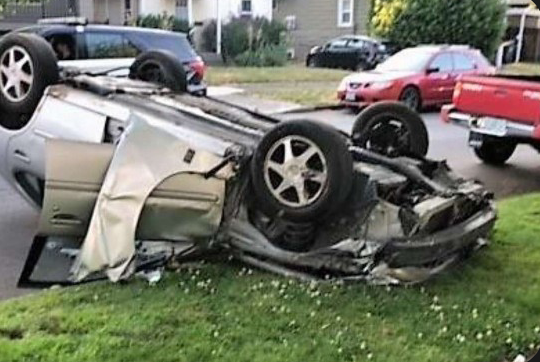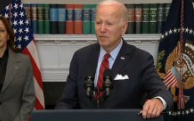
A new study published this month in The American Journal of Medicine claimed those unvaccinated from the COVID-19 virus were more likely to get in traffic accidents, drawing outrage on Twitter. The study’s authors suggested insurance companies should make changes to policies of unvaccinated individuals.
“The observed risks might also justify changes to driver insurance policies in the future,” the Canadian researchers advised.
The principal investigator for the study, Dr. Donald Redelmeier at the Sunnybrook Research Institute, claimed his research “demonstrated traffic risks were 50%-70% more frequent for adults who had not been vaccinated compared to those who had.”
“This does not mean COVID-19 vaccination directly prevents traffic crashes. Instead, it suggests that adults who do not follow public health advice may also neglect the rules of the road,” he concluded.
As the report went viral late Tuesday, medical professionals and scientists weighed in on the controversial study.
“Here is a joke of a study claiming the unvaccinated are involved in more car accidents. There’s a lot wrong with it,” Dr. Clare Craig, a British diagnostic pathologist wrote in a Twitter thread.
The doctor argued the study’s main problem was that it was morally misguided, but she also accused the researchers of misusing their data.
Craig argued the study was flawed for a number of reasons, including lumping in unvaccinated pedestrians injured in accidents.
“These claims are based on accidents which resulted in hospitalization. Each person injured is referred to in the paper as a ‘crash’ – even when the injured person was a pedestrian!” she wrote.
The “fundamental flaw,” she said, was that the study relied on the government database of vaccinated individuals. She pointed out that you could still be in an accident and not going to the hospital, and thus wouldn’t have been included in the study.
Linking to a table from the study she wrote, “No matter which way you chop the data the risk is apparently increased by about the same amount.”
She argued that the study’s data could be used to make any sort of claims about the unvaccinated, from having a higher rate of “giving to charity” to “recycling,” simply because the “denominator [was] artificially small.”
Other medical professionals mocked the study as absurd.
Dr. Vinay Prasad, a hematologist-oncologist and health researcher, laughed at its conclusions. “This also repeats the dumb idea that primary care doctors should specialty counsel unvaccinated people about driving,” he tweeted with laughing emojis.
Engineer and Substack author “Polimath” also mocked the study as unintended satire.
“I get awfully tired of saying ‘these vaccination studies are not telling you helpful things, they are misattributing confounding variables.’ So it’s nice that these researchers made my argument for me in this satirical form,” the user wrote.
The Twitter user argued the ultimate goal of such studies is to treat certain members of society like outcasts. “The ultimate goal of these studies is to say ‘those people are the outgroup and deserve every bad thing that happens to them. We should make their lives worse on purpose,’” they added.
Some conservative media figures agreed the study had nefarious intentions, using science to advocate that insurance companies punish the unvaccinated.
Radio host Jason Rantz tweeted, “This is the exact kind of nonsense study that sets the stage for car insurance companies charging the unvaccinated more for coverage. It’s transparent.”
Podcast host Dave Rubin slammed the study in a tweet, “This deserves the rare bananas clown emoji combo.”
The study looked at 6,682 traffic accidents in Ontario, Canada, during the summer of 2021 and found that the unvaccinated accounted for 1682 crashes or 25% of them, which the researchers claimed was “equal to a 72% increased relative risk compared with those vaccinated.”
Researchers proposed there could be a correlation between “distrust of the government, a belief in freedom, misconceptions of everyday risks, faith in natural protection, antipathy toward regulation, chronic poverty, misinformation, exposure to misinformation, insufficient resources and other personal beliefs,” to the increased risk of traffic accidents.
* Article from: Fox News


